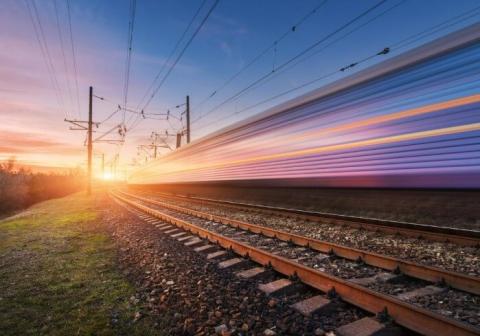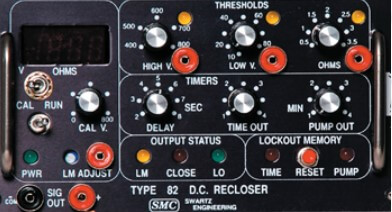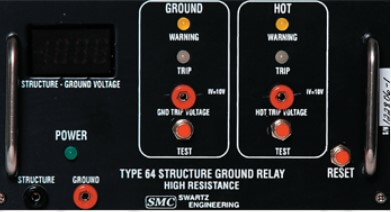
As global industries strive to reduce their environmental footprints, the railway industry is leading the charge with innovative solutions aimed at sustainability. Trains, already one of the most eco-friendly modes of transportation, are evolving to meet the demands of a greener future. Swartz Engineering has been at the forefront of these advancements, contributing cutting-edge technology to modernize rail systems. In this blog, we’ll explore the key sustainable innovations transforming the railway industry and how they contribute to a cleaner and more efficient transportation network.
1. Electrification of Rail Networks
Electrifying rail systems is one of the most significant steps toward sustainability. Electric trains produce zero on-site emissions and are significantly more energy-efficient compared to diesel-powered alternatives. Countries like Switzerland and Japan have already electrified the majority of their rail networks, setting benchmarks for global adoption.
Swartz Engineering supports this shift with advanced power systems, such as Type 82 DC Reclosing Relays, ensuring uninterrupted electrical flow and minimizing downtime during operations. These solutions make electrification more reliable and accessible for large-scale rail systems.
2. Renewable Energy Integration
The integration of renewable energy sources, like solar and wind power, is transforming how rail systems are powered. Solar panels installed at stations, along tracks, or on train roofs generate clean energy to power operations. Wind turbines located along railway corridors also contribute to the energy supply.
Rail operators are now adopting energy storage systems to capture and reuse surplus renewable energy. Swartz Engineering’s energy management solutions are designed to optimize this process, ensuring maximum efficiency and sustainability.
3. Energy-Efficient Technologies
Efficiency is a cornerstone of sustainable innovation. Advanced regenerative braking systems, for example, capture kinetic energy from braking trains and convert it into electricity. This energy can be reused to power trains or returned to the grid.
Modern trains are also equipped with lightweight materials and aerodynamic designs to reduce energy consumption. Swartz Engineering collaborates with rail manufacturers to develop smart monitoring systems that track and optimize energy usage in real time.
4. Hydrogen-Powered Trains
Hydrogen fuel cells are emerging as a game-changer in the railway industry. These trains run on hydrogen and emit only water vapor, making them an excellent alternative for routes where electrification is impractical.
Germany has already launched hydrogen-powered trains, and other countries are following suit. As hydrogen production and storage technology advances, Swartz Engineering is helping rail operators integrate this clean energy source seamlessly into their infrastructure.

GET IN TOUCH
In a hurry? Call us at 276-285-3841
5. Smart Railway Systems
Digital technology is playing a pivotal role in enhancing sustainability. Smart railway systems use sensors, artificial intelligence (AI), and Internet of Things (IoT) devices to improve efficiency and safety.
For example, predictive maintenance systems can monitor tracks, trains, and power systems in real time, identifying issues before they escalate. This reduces downtime, prevents accidents, and minimizes resource waste. Swartz Engineering’s cutting-edge digital solutions are integral to these smart systems, enabling rail networks to operate more sustainably.
6. Greener Construction Practices
Sustainability in the railway industry goes beyond operations—it starts with construction. Building rail infrastructure with eco-friendly materials, such as recycled steel and concrete alternatives, significantly reduces carbon footprints.
Additionally, techniques like green tunnels (which are landscaped to blend with natural surroundings) and eco-bridges help preserve biodiversity. Swartz Engineering is committed to providing innovative engineering solutions that support sustainable construction practices.
7. Passenger-Centric Sustainability
Passenger behavior also influences the sustainability of rail systems. Initiatives such as digital ticketing reduce paper waste, while real-time updates via apps improve passenger experience and reduce idle train time.
Moreover, railway operators are focusing on creating green stations that incorporate solar panels, rainwater harvesting systems, and energy-efficient lighting. Swartz Engineering contributes to these projects by designing reliable electrical systems to support such innovations.
8. Circular Economy Practices
The railway industry is embracing the principles of the circular economy by reusing and recycling materials. For example, old tracks and train components are being refurbished instead of discarded.
Swartz Engineering’s focus on durability and longevity ensures that its systems can be updated or repurposed, reducing waste and promoting a more sustainable approach to rail system management.
9. Collaboration and Global Efforts
Collaboration between governments, private companies, and research institutions is vital for advancing sustainability in the railway industry. Countries worldwide are working on policies and projects to encourage the adoption of greener technologies.
Swartz Engineering actively collaborates with industry stakeholders to develop solutions that align with global sustainability goals. From power systems to digital innovations, their contributions are shaping the future of the railway industry.

GET IN TOUCH
In a hurry? Call us at 276-285-3841
10. Economic and Environmental Benefits
Sustainable innovations in the railway industry offer dual benefits. Economically, they reduce operational costs through energy savings and efficient resource management. Environmentally, they lower greenhouse gas emissions, helping countries achieve their climate targets.
For example, a study by the International Energy Agency (IEA) found that shifting freight from road to rail can cut emissions by up to 75%. Swartz Engineering’s technology supports this transition by ensuring the reliability and efficiency of rail systems.
Conclusion
The railway industry is at the forefront of the global shift toward sustainability. By embracing electrification, renewable energy, hydrogen power, and smart technologies, rail systems are not only becoming greener but also more efficient and reliable.
Swartz Engineering is proud to be a part of this transformation. Through innovative power solutions, advanced monitoring systems, and sustainable construction practices, the company is helping the railway industry pave the way for a cleaner future.
As we look ahead, it’s clear that continued investment in sustainable innovations will be crucial for achieving environmental goals and meeting the transportation needs of future generations. The railway industry, with its inherent efficiency and commitment to progress, is poised to lead the charge toward a greener tomorrow.
Products We Offer
Swartz Engineering strives to provide top-quality products to achieve our customer's needs. Our products include:
- Type 76 DC Relay
- Type 82 DC Relay
- Swartz Engineering’s Type 64 Ground Relay
- Type 32 Reverse Current Relay
- Type 150 DC
- CSM Shield Monitor
- Metal Oxide Surge Arrestors
- Transducers
- MVIS SL Slim-line Contactor
- Fully-tested Power Control Rooms
- Swartz Engineering’s Portable Substations
For nearly half a century, we have proudly led the industry in ensuring safety and efficiency. Swartz Engineering is a trusted family-owned company dedicated to providing top-notch power distribution solutions for the electrical industry. Contact us today!
